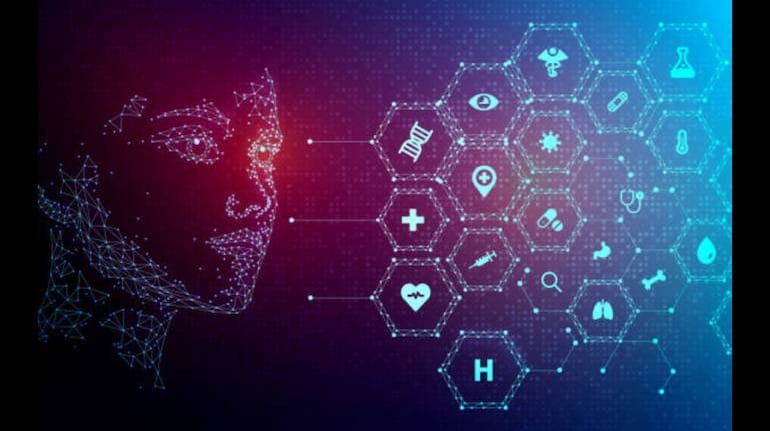



The rapid development of AI over the years has led to the creation of a vast array of practical tools that individuals and enterprises can utilise.
Machine Learning and AI technologies, in general, allow computers to do numerous tasks faster. As a result, operations run more smoothly, wait times are less, and expenses are lower. As a result, AI has pervaded everyday life. In every aspect, from scanning our emails to providing driving directions to making music or movie recommendations. Many gadgets that are handy in the home also use AI, and you may own some of them without even knowing that.
AI in real lifeThe best real-world applications of AI are voice assistants like Google Assistant, Alexa, and Siri. Using your phone's Speech Recognition and Natural Language Processing algorithms, they take your voice inquiry and give you the results verbally or in text.
AI in homeAI is compatible with smart home devices, enhancing their efficacy and facilitating daily duties. In addition, AI reduces human involvement in the execution of various tasks, allowing the user to devote more time to other pursuits.
Some of the most basic applications of AI at home include:
Smart cameras
Smart assistants
Kitchen appliances
Smart thermostats
Smart plugs
AI cleaners
Door locks
AI in writing emailsThe AI Email Writer is a ChatGPT-powered email composing application. It generates AI-generated email draughts based on the context of your last emails and the instructions you provide. Eliminate hundreds of hours per year spent managing email. The email generator is ideal for professionals who must swiftly and accurately compose emails.
AI in food deliveryApplying different AI algorithms and estimating the average time required to reach various routes enables AI to expedite and optimise food delivery planning. As a result, it allows businesses to deliver fresh foods to consumers more quickly and efficiently. Furthermore, a food delivery application can locate nearby delivery partners and select those most likely to have the order soon. It can be accomplished by confirming the delivery partner's past evaluations and overall rating.
AI in online shoppingPredictive analytics is another significant area where AI is having an impact on e-commerce. By analysing customer data, AI algorithms can forecast the most-likely products to be purchased, enabling retailers to optimise inventory management and reduce waste.
Amazon, for instance, employs Machine Learning in various methods, including creating chatbots, voice recognition, fraud detection, and product recommendations. In addition, Amazon uses AI and ML in its products, such as Alexa and its recommendation engine, as well as in other business areas, such as its warehouses.
AI in navigationAI allows for 10 times faster road-mapping than was previously achievable. AI and navigation data are utilised to estimate traffic, establish routes, identify hard-braking occurrences, and recommend alternate routes when they are available.
Google Maps, for example, is utilising AI to provide its customers with a more immersive and intuitive navigation experience. The most recent additions, such as Immersive View and Live View, add a new level of depth and engagement to the map, allowing users to explore locations and make informed decisions virtually. One way it accomplishes this is by assessing the current road situation and guiding the user accordingly to provide real-time updates and route recommendations. It allows the user to navigate better and judge the journey.
AI in schedulingAI-enabled software has numerous advantages for you as a scheduler or manager and for your organisation. You can, for example, use AI-powered employee scheduling software to establish fair and balanced schedules every time.
Smart calendars generate suggestions and optimise your calendar using deterministic algorithms and established rules created by engineers. If you enter similar data, it will always return the same results. For example, a developer may create a rule that says if a user adds a task called “jogging”, the activity should be scheduled at the same time the next day.
Calendar AI is more powerful, it can see patterns, make judgements, and learn from experience. When it begins processing your calendar data, it will be able to adapt and earn more relevant changes over time. For example, it may determine how long it takes you to perform a given task and change the expected time to finish it in the future. It can choose when you're most productive and assign higher priority chores to that time of day. It's dynamic, and it gives each user a more personalised outcome.
AI in fitnessPeople can use IoT (Internet of Things) sensors and smartwatches powered by AI to track how their bodies react to different types of training and figure out how to change their exercise plans. Using AI to track exercise metrics can give you more accurate results, reduce your risk of getting hurt, and make your workouts more effective. There are a lot of apps that can help you, but they need to work better. AI fitness apps include Freeletics, Aaptiv Coach, Whoop, and others.

Discover the latest Business News, Sensex, and Nifty updates. Obtain Personal Finance insights, tax queries, and expert opinions on Moneycontrol or download the Moneycontrol App to stay updated!
Find the best of Al News in one place, specially curated for you every weekend.
Stay on top of the latest tech trends and biggest startup news.